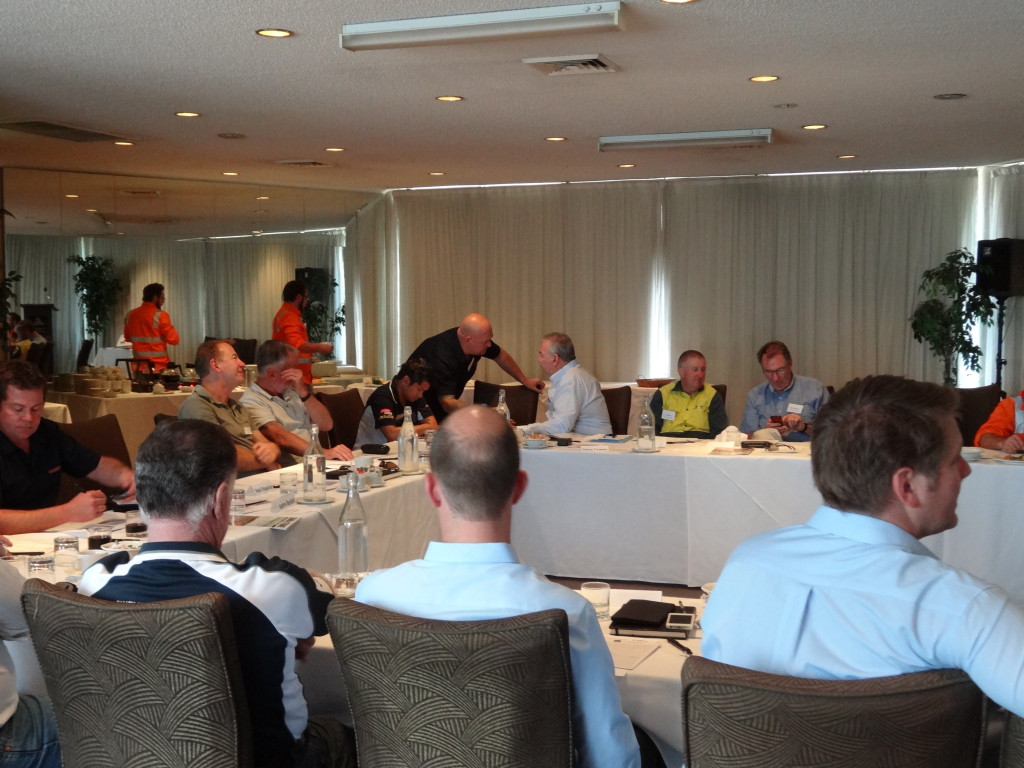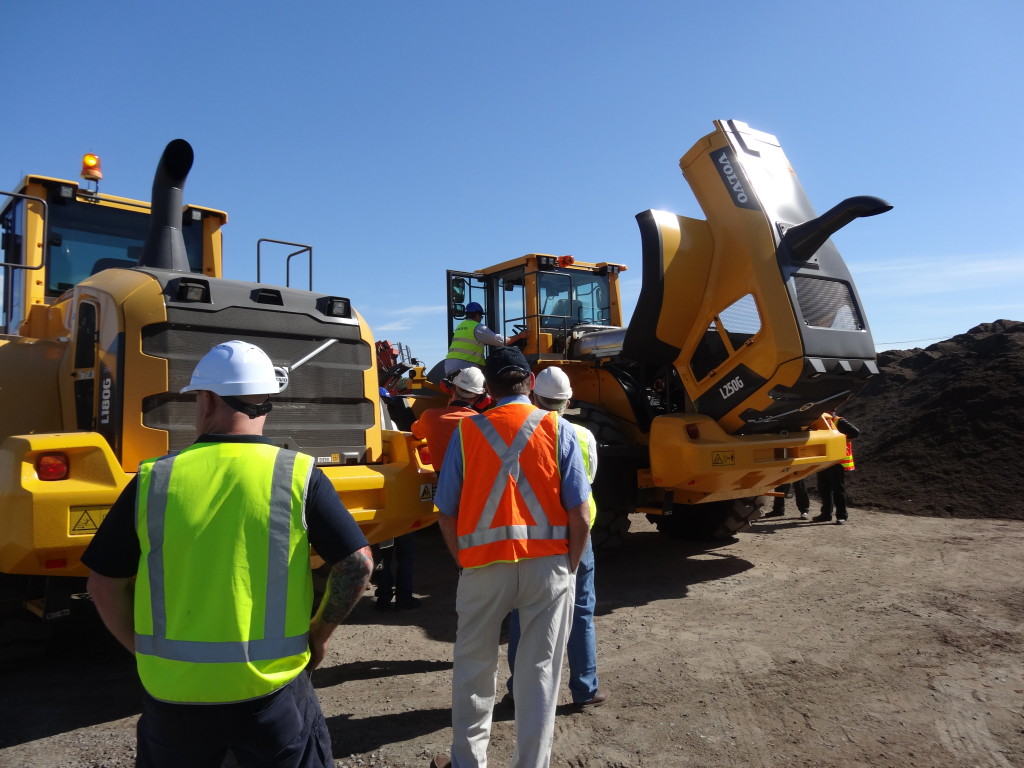Why Train Operators?
KATRINA MYERS, Project Manager Enterprise Delivery for Box Hill Institute asks the question why train operators?
No one shows up at work for the day expecting something to go wrong. People on site arrive with the best of intentions. They attend toolbox meetings, set the agenda, do their pre-starts and get to work. But the pressure is on. Time is of the essence. Equipment is retrieved and people move into their respective areas as soon as possible to move as many loads as they can.
Industry Consultant and Box Hill Institute Facilitator, Ian Turnbull said, “After you have been doing a job for a while, you get used to the way things are done and very rarely does anything change. The same jobs are done the same way they have always been done.”
But are there opportunities for improving efficiency and operating at a higher, better capacity?
Box Hill Institute’s Surface Extraction Operations Instructor, Noel Pickering said, “Most operators receive training that doesn’t extend much beyond basic operational control of the equipment they’re using, that is start, engage gear, go, stop, reverse, go, steer, tip, repeat. Generally, that’s enough and the work being done is good work. But when you start to delve deeper into what employees know or don’t know, alarm buttons start to ring,” he said.
Investing in operator training can bring about vast improvements on a work site. Site operations determine the viability, effectiveness and efficiency of a business. Quarry sites by their nature operate through an integration of various processes and operators with different capabilities. The right training can ensure that these work together in the right way at the right time.
Ian said, “You can look at each part of the business and see how it interacts with the other areas. Coordinating activities and measuring performance in a large site is an important part of creating efficiencies. Some businesses use drones to monitor movements around the site, using real time imaging to identify issues with functionality or machinery, cycle times and even operator techniques.”
Operators can have a big impact on the effectiveness of individual processes, such as loading haul trucks. Loading and unloading trucks can be done with slight variations in collection, lifting and swinging. The very location of the truck can affect operations and plotting out these processes can be a valuable way of reducing cycles.
Ian said, “If you look at the location of an excavator in context to the face of a blast, the bucket grab distance can impact efficiency. The way a haul truck moves up and down the quarry is another opportunity for efficiency. An operator using the right gears for different parts of your run avoids over-revving and loading up your drive shafts, which uses too much fuel. That is a measure that is not counted very often and yet it could be having an impact on your business.
“MMG Limited operates a mine that is about 450m deep. They know when a truck is in the wrong gear through automation, which communicates to a central hub. They have invested in this monitoring technology because it can take a long time to get up and down a mine so over a 12 hour shift, it adds up. If they can be more fuel efficient, they save money that can be reinvested in the business,” he said.
Good maintenance practices and techniques also affect the downtime of equipment. Pumps inside hydraulic lifters are easily damaged by the way that a control lever is engaged. As soon as the valve opens, oil is released. If operators let the lever go suddenly, the equipment gets a shock and can mark the school valve and gearing. Poor techniques have greater wear and tear on equipment, which will need to be repaired more frequently. But employees can be taught to operate equipment with finesse.
Noel said, “Finding the balance is the skill. All the training we do at operator level in Certificate II and Certificate III in Surface Extraction Operations is done in the workplace. We ask employees to do what they normally do but to approach activities with fresh eyes.
“For instance, when we do haul truck training, most people obey the Traffic Management Plan and tip off properly in a different location. We go beyond that to include emergency procedures should something very unexpected happen. We provide workplace scenarios and ask employees how they would handle the situation,” Noel said.
The pressure on employees and managers to perform, means that shortcuts can become part of the norm. New employees might be shown how to use a particular piece of machinery by a colleague, but in a hurry to get back to their own job, some important details might be missed. Training can help develop the habit in employees of locating and understanding critical safety systems before operating the equipment.
Training can also alert employees to assess pre-start activities and focus on the important checks like grease points, cracks, and hydraulic oil. It us surprising how many assumptions are made during pre-starts, particularly if a machines does not have a standard pre-start and include important specific checks.
Noel said, “I train operators in safe operation principles and practices, operational efficiencies, and basic operational maintenance practices including more involved pre-start checks and isolation, and lock and tag out procedures. I also cover hazard awareness relative to each item, which tends to raise a few eyebrows.”
Operational efficiencies need to be taught, but operator attitudes are changing and more businesses are taking advantage of the benefits training can deliver. Training fosters new approaches and brings about renewed enthusiasm for making continuous improvements. Very often, this is because the benefits of change are evident and so it is something businesses continue to employ.
Noel said, “Over the last 10 years, I’ve seen a marked increase in the availability of operator manuals, which employees grab with enthusiasm to find out more about the equipment they spend most of their waking life with. The more an operator knows about the plant and equipment they use, the more efficient they can be and the less likely they are to make mistakes. This means less downtime, better plant and equipment maintenance, increased operational efficiencies, reduced plant damaged, and more informed and motivated operators.”
Ian Turnbull is an Industrial Engineer and Ergonomist. Ian teaches the Diploma and Advanced Diploma in Extractive Industries Management at Box Hill Institute. He also consults in industry.
For more details Email: [email protected] or phone 03 9286 9093.
Noel Pickering is a trainer in Certificate II to Certificate IV and Diploma in Surface Extraction. He also delivers site based training in specialist operations.
Email: [email protected] or phone 03 9286 9093.
General course enquiries [email protected] or phone 03 9286 9093.












You must be logged in to post a comment Login